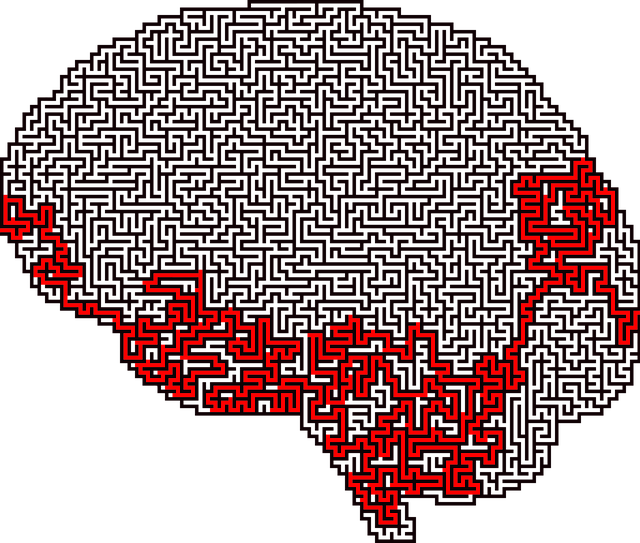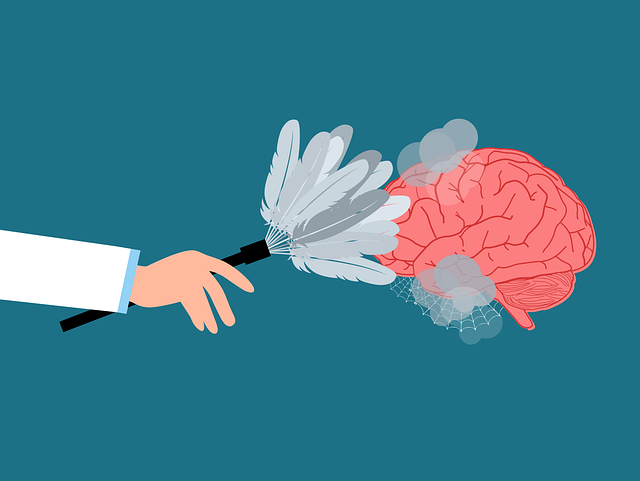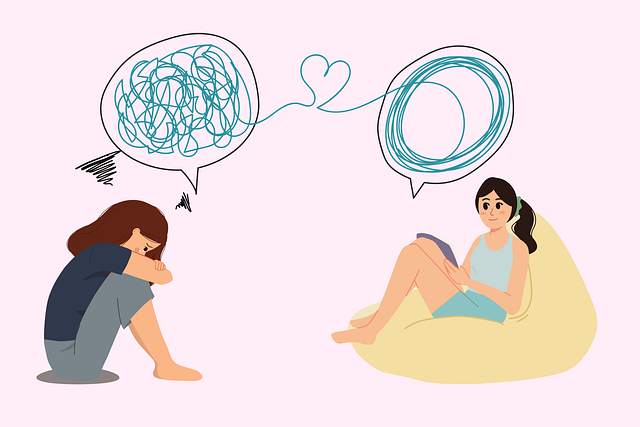Emotional intelligence (EI) is a vital component of overall well-being, especially for individuals who have experienced trauma or struggle with mental health issues. Aurora Child Abuse Therapy focuses on developing EI through evidence-based practices like mindfulness, journaling, and social skills training. By enhancing self-awareness, relationship management, and emotional regulation, this therapy equips survivors with better coping mechanisms, improved conflict resolution, stronger relationships, reduced stress, and enhanced mental health. Nurturing empathy and social skills fosters deeper connections and healthier interactions, contributing to improved well-being for both individuals and society as a whole.
Emotional intelligence (EI) is a powerful tool for personal growth and well-being. This article explores the multifaceted aspect of EI, focusing on its impact on mental health and the role of therapy in building resilience. We delve into recognizing signs of child abuse and neglect, as early intervention is crucial. Additionally, we present strategies to enhance emotional awareness and regulation, foster empathy, and develop social skills, all essential components of Aurora Child Abuse Therapy’s approach to nurturing healthy relationships.
- Understanding Emotional Intelligence and Its Impact on Well-being
- Recognizing the Signs of Child Abuse and Neglect
- The Role of Aurora Child Abuse Therapy in Building Resilience
- Strategies for Enhancing Emotional Awareness and Regulation
- Nurturing Empathy and Social Skills for Better Relationships
Understanding Emotional Intelligence and Its Impact on Well-being

Emotional intelligence (EI) refers to the ability to recognize, understand, and manage one’s own emotions as well as recognize, interpret, and influence the emotions of others. It encompasses a range of skills, including self-awareness, self-management, social awareness, and relationship management. At Aurora Child Abuse Therapy, we emphasize the importance of EI in promoting overall well-being, especially for individuals who may have experienced trauma or struggle with mental health issues like depression prevention.
Developing emotional intelligence can significantly impact an individual’s quality of life. It fosters better coping mechanisms, enhances conflict resolution techniques, and strengthens interpersonal relationships. By understanding and managing emotions effectively, people can improve their mental health, reduce stress, and build resilience against challenges. Moreover, high EI is linked to increased job satisfaction, improved leadership skills, and enhanced overall performance in various aspects of life.
Recognizing the Signs of Child Abuse and Neglect

Recognizing the signs of child abuse and neglect is a crucial step towards ensuring the well-being and future resilience of our youngest members. In Aurora, Child Abuse Therapy services are available to support families navigating these complex issues. Professionals look for both physical and emotional indicators, including unexpected changes in behavior, withdrawal from activities, or persistent fears and anxiety. These can be early warning signs that a child may be experiencing abuse or neglect at home.
Promoting mental wellness through self-care practices and development of resilience building skills is an essential part of the healing process. Mental Wellness Coaching Programs offer strategies to build coping mechanisms and enhance emotional intelligence, empowering both children and their families. By fostering open communication and implementing healthy Self-Care Practices, communities can create a supportive environment that protects vulnerable children and encourages them to thrive.
The Role of Aurora Child Abuse Therapy in Building Resilience

Aurora Child Abuse Therapy plays a pivotal role in building resilience among individuals who have experienced trauma, particularly child abuse. Through specialized programs and tailored interventions, this therapy offers a safe space for healing and growth. By employing evidence-based practices, therapists help clients develop coping mechanisms to manage intense emotions, enhance self-awareness, and foster healthy relationships. This proactive approach not only mitigates the long-term effects of trauma but also equips individuals with the tools necessary for effective stress management and improved communication strategies.
Incorporating Aurora Child Abuse Therapy into a comprehensive risk management planning for mental health professionals is essential. It enables practitioners to provide more holistic care, ensuring that clients can navigate life’s challenges with greater resilience and emotional intelligence. This focus on trauma recovery contributes significantly to the overall well-being of individuals, communities, and society at large, breaking down barriers and promoting positive mental health outcomes.
Strategies for Enhancing Emotional Awareness and Regulation

Developing emotional intelligence involves nurturing a deeper understanding and management of our own feelings, as well as those of others. At Aurora Child Abuse Therapy, we believe that fostering this skill set is paramount for mental wellness. One effective approach to enhancing emotional awareness is through mindfulness practices, such as meditation or journaling. These techniques encourage individuals to observe their emotions without judgment, leading to a greater sense of self-awareness and control.
Additionally, our Mental Wellness Coaching Programs Development focus on teaching practical strategies for emotional regulation. This includes learning to identify triggers, understanding the connection between thoughts and feelings, and adopting healthy coping mechanisms. Social Skills Training, tailored to meet individual needs, plays a crucial role in helping individuals navigate relationships and communicate their emotions effectively. Through these comprehensive Mental Health Education Programs Design, Aurora Child Abuse Therapy empowers clients to build resilience, improve their overall emotional intelligence, and cultivate healthier interactions with themselves and others.
Nurturing Empathy and Social Skills for Better Relationships

Nurturing empathy and enhancing social skills are vital components of emotional intelligence development, especially for individuals who have experienced challenges like aurora child abuse therapy. Building resilience through these means enables people to form deeper connections and navigate relationships with greater ease. Empathy allows us to step into another person’s shoes, understand their feelings, and respond with compassion, fostering an environment of trust and support.
Social skills, on the other hand, facilitate effective communication and collaboration, which are essential for maintaining healthy relationships. Through group activities, role-playing exercises, and guided discussions, individuals can learn to manage their moods, reduce stress, and employ productive coping mechanisms. These practices not only enhance emotional well-being but also contribute to better conflict resolution, strengthening personal and professional ties.
Emotional intelligence is a powerful tool for enhancing well-being, fostering healthy relationships, and building resilience. By understanding the impact of child abuse and neglect, recognizing signs early on, and utilizing strategies like those offered by Aurora Child Abuse Therapy, individuals can develop emotional awareness, regulation, empathy, and social skills. These elements are crucial for navigating life’s challenges and creating positive connections. Through nurturing these aspects, especially in childhood, one can cultivate a stronger, more resilient self capable of thriving in various environments.














